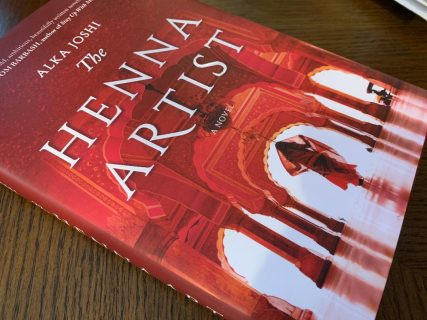
Another Amazing Thing! – pt II
Can books change the world? Do authors imitate life in art and leave thoughts for reflection or do reflections of life leave imprints for authors to imitate?
Hop over to some of my other blogs where I ponder about the diversity of stories: One Amazing Thing, Sea Prayer to Mountains and Kites to 1000 Splendid Suns – books by Khaled Hosseini, The Henna Artist, The Secret Keeper of Jaipur by International bestseller, Alka Joshi, and Everything I Never Told You by Celeste Ng
I’ve often wondered how authors find their stories and characters. Is the trigger from a news article, something on TV, an incident with family, friends, neighbors? Do leading and secondary characters arise from office colleagues up close and personal? Or perhaps they stem from family members they’ve known forever but one incident becomes the wake-up call?
For Indian-American writer, award-winning and best-selling author, poet, activist and teacher, Chitra Banerjee Divakaruni, immigration nurtured her into a writer. Ms. Divakaruni’s works have been included in over 100 magazines, 50 anthologies, translated into 29 languages, used for city and campus-wide reads and adapted into screenplay.
“When I was in India, I didn’t think I had a story to tell. I led an ordinary life,” she told her audience at a lecture on September 23rd at Emory University, Atlanta. “It was only when I moved half way across the world I began to see my life with a new perspective because I was so far from it, I began to appreciate it. I began to question things I had begun to take for granted.”
She explained how she spent summers at her grandfather’s place as a girl and listened to grandpa’s stories outdoors in the light of the kerosene lamp and only shadows of the night to keep them company. She listened and absorbed all he had to tell but never thought she would become a writer. Then many years later Ms. Divakaruni’s grandfather passed away, and the fear of not being able to visualize his face and the possibility of losing her heritage led her toward the path of writing. The gains of having moved to the U.S.A. conflicted with the loss of the homeland, India, she’d left behind and she began to write to remember. She wrote for herself.
“Much later when I began writing these stories began to come out.”
However a turning point in Ms. Divakaruni’s life and writing came when she worked with survivors of domestic violence and physical abuse. At first she didn’t notice any S.Asian women seeking shelter and figured the issue didn’t affect women from those backgrounds. However, when one Indian woman (let’s call her Pooja) with a baby dared to come forward and seek protection, Ms. Divakaruni was devastated to hear the physical and emotional abuse Pooja had endured at the hands of her husband and worked with the organization to support her. However, Pooja disappeared with her baby the next morning and Ms. Divakaruni later found out Pooja had called her husband out of fear to come get her. Shocked, Ms. Divakaruni worked with the organization to try and find Pooja, but to no avail. The incident echoed what Pooja had confided to her the day before:
“Who in this country cares what happens to me? Who even knows who I am?”
The question haunts Ms. Divakaruni to this day. “Domestic violence knows no barriers,” she said. “It’s present everywhere, occurs everywhere in all communities.” Heartbroken and unable to find any trace of Pooja Ms. Divakaruni “began to write for others, not for myself.”
The devastation of 9/11 shook Ms. Divakaruni’s world yet again. She narrated how she was shopping with her youngest (of 2) sons at the local grocery store and was heading to the parking lot with a shopping cart when a truck whizzed past and the men inside shouted at them to ‘Go home.”
“What did we do? Why were the men so angry with us?” her son asked, petrified.
Ms. Divakaruni said the aftermath of 9/11 affected communities that looked “suspicious” even though members of the so-called ‘suspicious’ communities had lost family members in the event and were still subjected to further violence. In a quest to encourage children to open their minds and help better their understanding she began to write for children.
“I’m a great believer in books changing us,” she said. “Through books we are able to grow and change. Through art and in our reflections.”
For a woman who didn’t think she had a story to tell and believed her life was ordinary, the gifts and power of her stories have not just crossed continents but every form of media, education, and boundary. Which is why her life and writings are truly One Amazing Thing!











